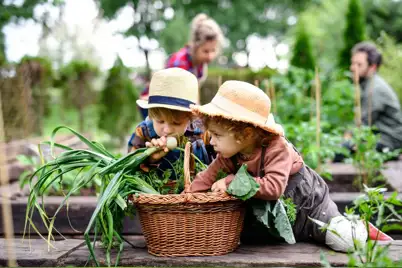Organic gardeners aim to grow strong pest resistant plants. They also establish a diverse range of plant species and create natural habitats that support a range of beneficial organisms to help bring about natural pest control. When pest or disease outbreaks do occur, national organic standards permit the use of:
- biological controls using naturally occurring cultured organisms such as Yates Nature's Way Caterpillar Killer Dipel Bio-insecticide (Bacillus thuringiensis var. Kurstaki)
- copper oxychloride such as Yates Leaf Curl Copper Fungicide
- fruit fly baits in enclosed traps
- exclusion fabrics including cloth and paper fruit fly control bags
- boracic acid for cockroach control
- iron-based products such as those used in organic snail bait
- light mineral oil such as PestOil
- lime products including dolomite, garden lime and agricultural lime
- lime sulfur-based products including Yates Lime Sulfur Spray
- powdered or wettable sulfur
- natural pyrethrum
- plant oils such as vegetable oil, neem and garlic
- potassium permanganate (Condy's Crystals)
- potassium-based soap sprays such as Natrasoap
- plant-derived products including rotenone as found in Yates Vegetable Derris Dust
- vinegar
- seaweed, seaweed meal and seaweed extracts
- sodium silicate and sodium bicarbonate
- horticultural insect barrier glues and sticky traps
This information is from the Yates Garden Guide: fully revised & updated 44th edition, HarperCollins, $39.99. You can have this information and so much more at your fingertips by purchasing the Yates Garden Guide, available at all leading bookstores and Bunnings stores.




